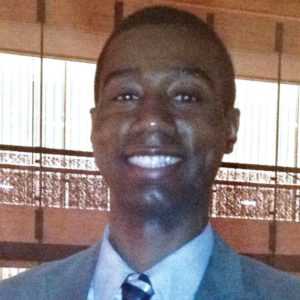How Howard University and HBCUs Foster Young Entrepreneurs


Howard and some 100 other institutions recognized as HBCUs were founded before 1964 with the principal mission of educating black students. Initiatives like Howard’s Entrepreneurship Leaders Innovation Institute and the HBCU Innovation Summit are putting an emphasis on spurring entrepreneurship among black professionals.
Higher education is among the greatest catalysts for young entrepreneurs who strive to become future business leaders. Good colleges provide intensive coursework to develop the requisite skill set in one’s chosen field, as well as social networking opportunities where one can cultivate positive relationships with people who will one day serve as mentors, colleagues and referrals.
This Is Capitalism has spotlighted Eddie Brown, founder of Brown Capital Management, which is the second oldest African-American owned investment management firm in the world and oversees more than $10 billion in total assets. Eddie Brown’s path to success began at Howard University, one of the Historically Black Colleges and Universities (HBCUs) known for helping many entrepreneurs get their start.
The long list of well-known Howard University alumni hints at why the Washington D.C. campus holds a special status among the HBCUs. In 2016, business mogul Sean “Diddy” Combs (who has stakes in apparel, fragrance and beverage brands in addition to his award-winning music label) donated $1 million to Howard’s undergraduate business school. And Thurgood Marshall ran a private law practice before becoming the first African-American U.S. Supreme Court Justice. Both men attended the school.
Howard and about 100 other institutions recognized as HBCUs were founded before 1964 with the principal mission of educating black students who go on to establish professions as entrepreneurs and leaders in the private and public sectors. Prior to the integration movement that schools experienced during the 1960s, HBCUs were the main destination for black people seeking higher education in the U.S.
In recent years, Howard and other HBCUs have launched several initiatives to foster a new generation of young business leaders.
Howard Community
As early as 2003, Howard University started making renewed efforts to bolster innovative entrepreneurship in the black community. That’s when the Entrepreneurship Leadership Innovation Institute was founded on campus with the goal of allowing students to participate in business planning and case studies, regardless of their fields of study.
On March 8, 2016, Washington D.C. Mayor Muriel Bowser and representatives from Howard University broke ground on the Inclusive Innovation Incubator, a hub created to promote entrepreneurs and businesses from underrepresented communities that will then provide resources to improve those areas. Howard’s role includes helping venture capital firms work with technology startups. The hub also set out to offer training, networking and access to Silicon Valley investors.
The hub, also called In3, went on to start distinct programs for adults and children. The adult program’s workshops and classes have featured instruction on how to start and expand a new business, computer coding and hackathons, as well as coaches and mentors who operate in sought-after professions. The youth program has benefited elementary, middle school and high school kids through tech-focused after-school and summer camp activities.
Innovation at HBCUs
In 2013, the HBCU Innovation Summit was started by the non-profit scholarship organization UNCF to enhance technological and science-based entrepreneurship in the black community.
Since its inception more than 300 HBCU computer science and engineering scholars have met with executives and recruiters in the industry, and more than 100 HBCU computer science faculty have partnered with Silicon Valley firms to shape coursework at the schools. At the 2017 summit, over 100 HBCU fellows convened in Silicon Valley to go on site at major companies such as YouTube, Adobe, Salesforce, and Twitter.
Similar programs created to increase tech opportunities for black students include HBCUHacks and HBCU.vc, both of which were co-founded by Hadiyah Mujhid, an African-American female software engineer who spent a decade working at Lockheed Martin after graduating from University of Maryland Eastern Shore — an HBCU.
HBCUHacks was established to host a series of weekend hackathons on various campuses, to help students combine coding and business acumen, as well as offer the chance to design apps. HBCU.vc, which has hosted tech conferences and startup competitions, was launched to teach students the investment fundamentals and market research required to excel at venture capital projects.
Next-Gen Capitalists
Inspiring a new generation of technology-focused entrepreneurs is surely beneficial to black students in search of brighter futures, but it’s also beneficial to America as a whole. The future of capitalism demands that businesses make innovative use of technology to improve the lives of all people. This enormous task calls for more diverse company leadership, to ensure that fresh and inclusive ideas yield the best products and services.
Of course, not all firms will base their value proposition on computer programmers and engineers. For instance investment managers use computers to process data, then apply human experience and expertise to make the proper decisions. But the two fields are becoming increasingly related, and in fact it has long been the case that developing strong tech skills can lay the groundwork for a successful finance career.
For instance, Eddie Brown studied electrical engineering at Howard University and took a job at IBM upon graduation, before entering the financial services industry and eventually launching his own investment firm.
Thanks to the many entrepreneurial programs now in the works across the HBCUs, there is good reason to look forward to the innovations that will come from young capitalists studying there today. As Eddie Brown has said, “If you put all of the pieces in place, and stay at it and do it well, there are no limits.”